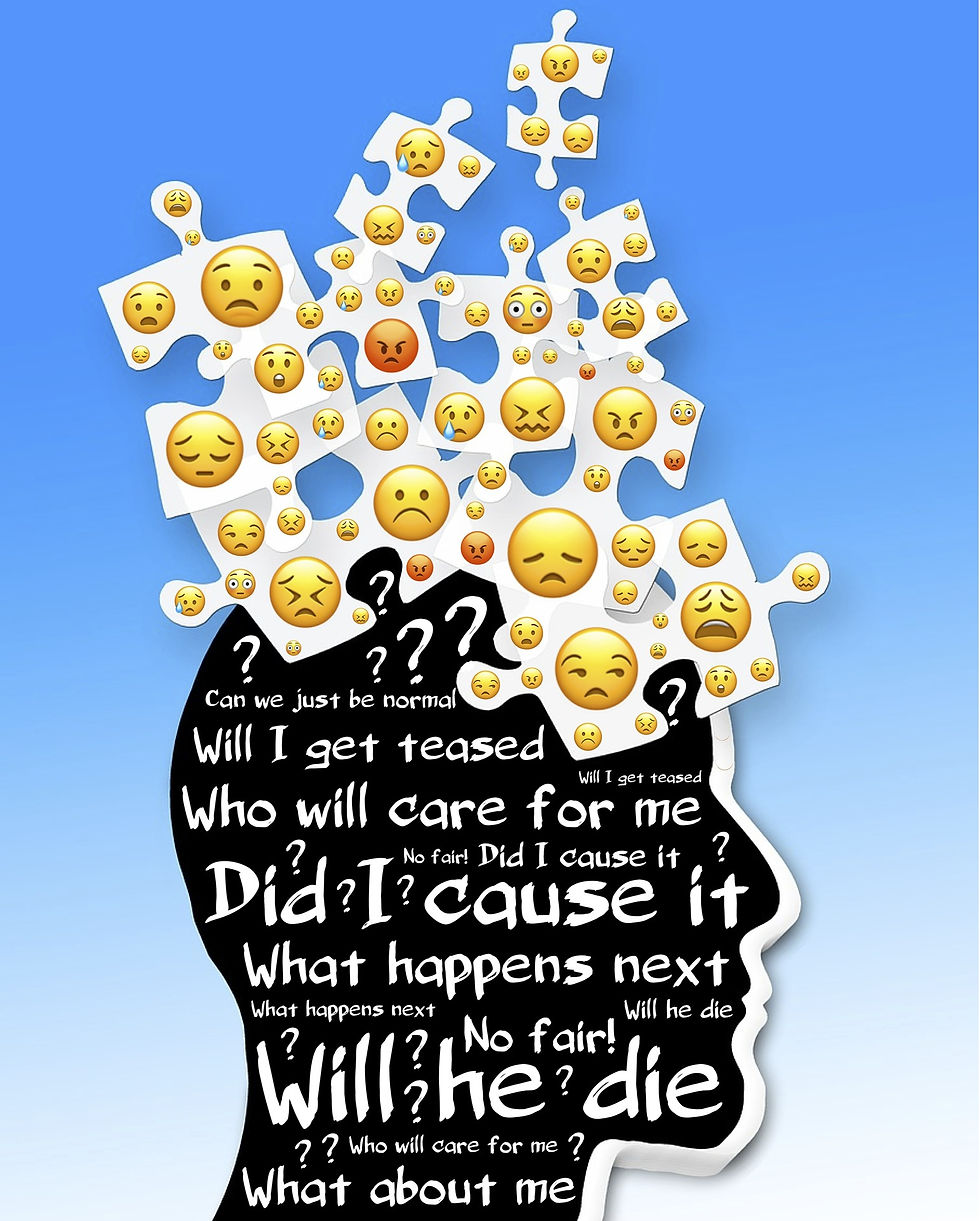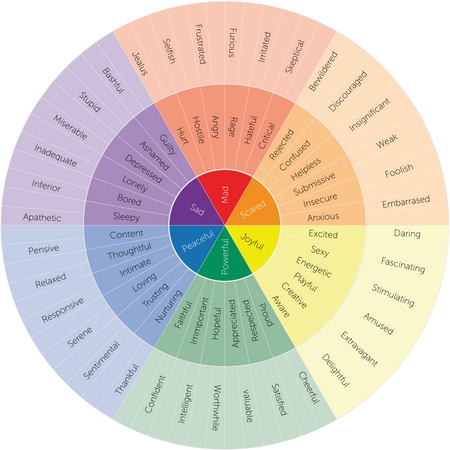
Allow Yourself To Feel! - Part 2
BEAUTIFUL ME (Series) - Allow Yourself To Feel Part 2
"You can be positive, happy, grateful and still have awful days. Yes, to thinking good thoughts and being positive but also yes to acknowledging that you feel crappy, sad and distressed. Yes, to all feelings. You don’t have to be perfect; imperfection is perfection even on the most perfectly imperfect days”–by Juleen
There is a great therapeutic book for children, written by Margot Sunderland, called Nifflenoo the Never mind. Nifflenoo is a little boy who dismisses all of his more painful feelings with the words, "never mind". As Nifflenoo’s best friend is called Colin Could be Worse, it goes without saying that he is not a pal who validates his friend’s emotions! In the story, all of Nifflenoo’s more difficult feelings get stuffed into his body until he finally erupts. In the end, with help, he realizes that he does mind and is happier and lighter now that he allows himself to feel. Unhelpful thoughts such as "it could be worse," or "I shouldn’t complain” poses a threat for those who need and require help.
It is unfortunate, but we live in society that places greater emphasis on feeling ‘good’ and ‘happy’ and shove feelings of pain, sadness, grief, depression and hurt into a locked box labelled “DO NOT OPEN”. The normalization of shoving the feelings that makes us cower, hide, cry or break has resulted in persons having difficulty dealing with emotions as well as applying critical thinking skills to everyday practical problems. Growing up, emphasis was placed on being grateful no matter the circumstances and the situation.
Any inclination towards questioning or bemoaning our state of affairs was frowned upon as if that aspect of life where things go wrong was non-existent and unimpactful. The notion of dealing with the good and the bad and expressing feelings for the latter was trivialized and relinquished to the back burner. We then lost sight of the journey and the intended purpose those struggling moments tend to teach; wisdom, perseverance, strength, character, faith and for some prayer and trust.
So, what happens when one’s taught to suppress their emotions?
Suppression leads to the inability to deal with traumatic experiences, to apologize, to assert and to a greater extent to empathize with others. Maybe you’ve heard the saying, “What you resist, persists”. When we shy away from our feelings, we are temporarily tucking them in a vault made out of rubber. The more we continue tuck away, the bigger the vault becomes and the higher the chances of that vault exploding when we least expect it and when we are unprepared to deal with its aftermath. Once that vault explodes and due to our unpreparedness, we then adopt unhealthy patterns and behaviors to curb the after effects. This then becomes a cycle that is hard to break. When we deal with our emotions, we are using that vault not as storage for our feelings but as a processor where we harness wisdom, past lessons, problem solving skills, perseverance, trust and faith.
How to process your feelings?
Express instead of Suppress
Emotions are a part of the human experience. Identify and acknowledge what you are feeling and then assess your behavior and thoughts in relation to those feelings. Do not patronize what you are feeling but rather take a moment to process the emotions, taking into consideration the situation that led you to where you are now.
Take your time
This is not a race! Take all the time you need to properly assess your emotions, the situation, your behavior and thoughts.
Adopt Coping Mechanisms
When you feel that you have properly analyzed what it is your feeling you can then focus on the appropriate reaction and possible problem-solving techniques you can apply if needed. There are activities that can help with processing such as; journaling, dancing, listening to music, praying, going for a walk, taking a long shower and or talking to someone. These activities might seem like everyday tasks but they are great coping mechanisms when our brain and hormones are out of sync and in chaos mode.
Reflection and Introspection
Emotions are fleeting and none last forever including happiness and sadness. After the storm, take some time to reflect on the cause and effect, your actions and reactions. People who deal with and manage their emotions know that its healthy to express their feelings but it matters how (and when). Reflecting on your reaction(s) and behavior is a productive way to get a sense of the when, why and how.
Learning how to feel and react in a healthy way takes practice. We all can get better at expressing our emotions and that is something to feel good about!





